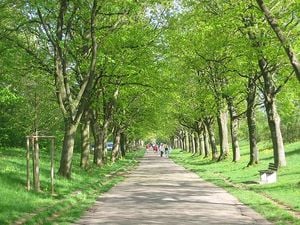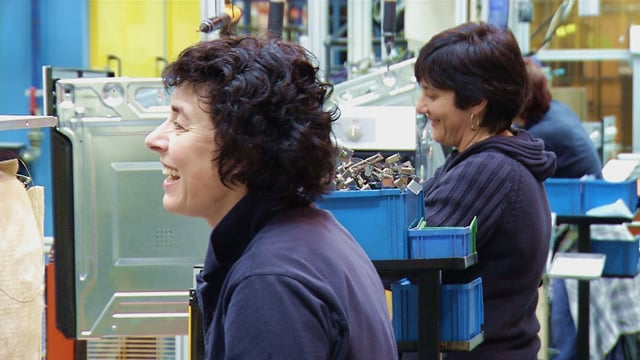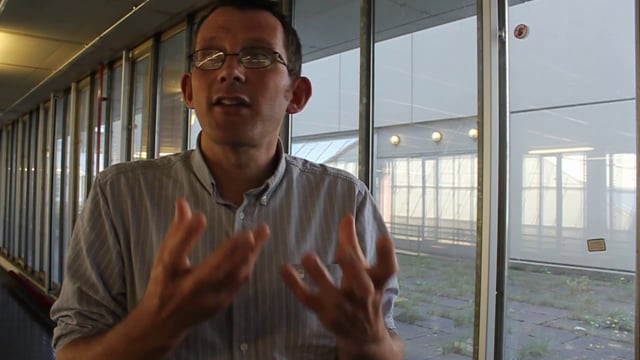Towards sustainable economies

Alternatives to mainstream economics are many. The criticism of economic materialism as a dehumanizing behaviour that is destructive to Earth, as human habitat, comes from religion and social activism. From the secular perspective, social activism indicates that from consumerist materialism derive crime (which originates from the poverty of economic inequality), industrial pollution and the consequent environmental degradation, and war as a business. W
 What Ghana’s small businesses can teach the world about becoming more sustainable, theconversation.com (Jan 06, 2025)
What Ghana’s small businesses can teach the world about becoming more sustainable, theconversation.com (Jan 06, 2025)  The Serviceberry: this Indigenous understanding of nature can help us rethink economics, theconversation.com (Nov 18, 2024)
The Serviceberry: this Indigenous understanding of nature can help us rethink economics, theconversation.com (Nov 18, 2024)  We need stories, characters, mythologies to firm up our resolve to tackle climate catastrophe. Swarm Dynamics are animating these, for NGOs and others, Daily Alternative (Oct 28, 2024)
We need stories, characters, mythologies to firm up our resolve to tackle climate catastrophe. Swarm Dynamics are animating these, for NGOs and others, Daily Alternative (Oct 28, 2024)
Community action projects[edit | edit source]
- develop a Mutual aid network
- develop Community Currencies
- encourage business swaps
- encourage e-work, telework clubs and teleconferencing facilities
- encourage Free stuff or the gift economy, sharing and simple living
- microfinance initiatives
- promote fair trade
- set up credit unions
- slow money initiatives
- support cooperatives and social enterprise
- support initiatives to make the wider economy more sustainable such as basic income and ways of redefining progress
- sustain the custom of potlatch
- sustainability awards
- waste exchange schemes
Events[edit | edit source]
 Nov 6 - 9, 2024 — Global Donut Days, doughnuteconomics.org
Nov 6 - 9, 2024 — Global Donut Days, doughnuteconomics.org Dec 11, 2024 (Wed) — International Mountain Day, Dec 11, annually, fao.org
Dec 11, 2024 (Wed) — International Mountain Day, Dec 11, annually, fao.org Jul 05, 2025 (Sat) — CoopsDay, 1st Saturday of July, coopsday.coop
Jul 05, 2025 (Sat) — CoopsDay, 1st Saturday of July, coopsday.coop Sep 15, 2025 (Mon) — Free Money Day, Global invitation for people to explore, in a liberating and fun way, what it might be like if our relationship to money was a little different. Sep 15, annually, freemoneyday.org
Sep 15, 2025 (Mon) — Free Money Day, Global invitation for people to explore, in a liberating and fun way, what it might be like if our relationship to money was a little different. Sep 15, annually, freemoneyday.org
Basic income[edit | edit source]
An unconditional basic income (also called basic income, basic income guarantee, universal basic income, universal demogrant, or citizen’s income) is a form of social security system in which all citizens or residents of a country regularly receive an unconditional sum of money, either from a government or some other public institution, in addition to any income received from elsewhere. W
Related concepts are Universal basic services W and Universal Basic Assets iftf.org
External links
Cooperatives[edit | edit source]
A cooperative (also known as co-operative, co-op, or coop) is "an autonomous association of persons united voluntarily to meet their common economic, social, and cultural needs and aspirations through a jointly-owned and democratically-controlled enterprise". Cooperatives may include:
- non-profit community organizations
- businesses owned and managed by the people who use their services (a consumer cooperative)
- organizations managed by the people who work there (worker cooperatives)
- organizations managed by the people to whom they provide accommodation (housing cooperatives)
- hybrids such as worker cooperatives that are also consumer cooperatives or credit unions
- multi-stakeholder cooperatives such as those that bring together civil society and local actors to deliver community needs
- second- and third-tier cooperatives whose members are other cooperatives
Research published by the Worldwatch Institute found that in 2012 approximately one billion people in 96 countries had become members of at least one cooperative. The turnover of the largest three hundred cooperatives in the world reached $2.2 trillion – which, if they were to be a country, it would make them the seventh largest. [need quotation to verify] W
Alternatives to mainstream economic concepts[edit | edit source]
TAPAS – “There Are Plenty of AlternativeS!” David Bollier, To Make Hope Possible Rather Than Despair Convincing[1]
Green movements, but also thinkers from other areas, are opposed to the focus put on economics. The need for terminology has created familiar ideas such as carrying-capacity, and ecological footprint. W
Degrowth[edit | edit source]
Degrowth is considered an essential economic strategy responding to the limits-to-growth dilemma. Degrowth thinkers and activists advocate for the downscaling of production and consumption—the contraction of economies—arguing that overconsumption lies at the root of long term environmental issues and social inequalities. Key to the concept of degrowth is that reducing consumption does not require individual martyring and a decrease in well-being. Rather, 'degrowthists' aim to maximize happiness and well-being through non-consumptive means—sharing work, consuming less, while devoting more time to art, music, family, culture and community. W
Ecological economics[edit | edit source]
Ecological economics/eco-economics refers to both a transdisciplinary and interdisciplinary field of academic research that aims to address the interdependence and coevolution of human economies and natural ecosystems over time and space. It is distinguished from environmental economics, which is the mainstream economic analysis of the environment, by its treatment of the economy as a subsystem of the ecosystem and its emphasis upon preserving natural capital. W
Post growth[edit | edit source]
Post-growth can be distinguished from similar movements (such as degrowth, steady state economics, post-materialism) in that it focuses on acknowledging, supporting and building on the sustainable initiatives, systems and products that are already in place. Post growth advocates try to encourage, connect and further develop these existing ideas and actions. In this way, "post growth" does not specify the answer to the limits-to-growth challenge, as “steady state economics” and “degrowth” do, but rather seek to understand and address this challenge from a complex systems perspective that is constantly evolving. With this holistic complex systems approach, post growth deals with all aspects of self and society (such as psychology, human nature, human evolution, cultures, social systems and economies) and the interrelation of all of these aspects. Accordingly, the post growth concept also advocates solutions that are appropriate with regards to place, time, resource and cultural factors. Therefore, post growth initiatives take shape in very different ways under different circumstances.
Post growth can be considered an asset-based approach to community development, applied not only to community development but across a wide range of categories and in response to limits-to-growth challenges, as it seeks to build on the cultural and technological assets that already exist and are facilitating the emergence of post growth futures. W
Circular economy[edit | edit source]
Main article: Circular economy
A circular economy is a regenerative system in which resource input and waste, emission, and energy leakage are minimised by slowing, closing, and narrowing material and energy loops. This can be achieved through long-lasting design, maintenance, repair, reuse, remanufacturing, refurbishing, and recycling. This is contrast to a linear economy which is a 'take, make, dispose' model of production. W
Getting to a circular economy involves a lot of redesign. A question which may not be getting enough attention so far is the extent to which local communities, as opposed to just big business, can influence and be involved in this redesign, although there may be examples of individual communities attempting this path for their own local economic development.
Doughnut economics[edit | edit source]
The Doughnut, or Doughnut economics, is a visual framework for sustainable development – shaped like a doughnut or lifebelt – combining the concept of planetary boundaries with the complementary concept of social boundaries. The name derives from the shape of the diagram, i.e. a disc with a hole in the middle. The centre hole of the model depicts the proportion of people that lack access to life's essentials (healthcare, education, equity and so on) while the crust represents the ecological ceilings (planetary boundaries) that life depends on and must not be overshot. The diagram was developed by Oxford economist Kate Raworth in the Oxfam paper A Safe and Just Space for Humanity W
Meet the doughnut: the new economic model that could help end inequality, weforum.org, Apr 28, 2017
Downscaling the Doughnut to the City[edit | edit source]
So you want to downscale the Doughnut ? Here's how. kateraworth.com, July 16, 2020
Solidarity economy[edit | edit source]
Solidarity economy or social and solidarity economy (SSE) refers to a wide range of economic activities that aim to prioritize social profitability instead of purely financial profits. A key feature that distinguishes solidarity economy entities from private and public enterprises is the participatory and democratic nature of governance in decision-making processes as one of the main principles of the SSE sector. Active participation of all people involved in decision-making procedures contributes to their empowerment as active political subjects. However, different SSE organizational structures reflect variations in democratic governance and inclusive participation. Ultimately, SSE represents a crucial tool in guaranteeing that social justice ideals are upheld and that the wellbeing of the most vulnerable populations is paid attention to during the planning processes.
Near you[edit | edit source]
local information and news can be found, or shared, via our many location pages
See also: Community involvement, Ethical consumerism, Free stuff, Localism, Sharing, Transition Network, Open Source Ecology, Commons, Green New Deal
External links
- Wikipedia: Basic income, Consumer cooperative, Degrowth, Ecological economics, Grameen Bank, Maker culture W, Maker Faire W, Mondragon Corporation, Organization workshop W, Post growth, Social finance, Solidarity economy
Creative commons
- OuiShare A French-based non-for-profit aiming to connect efforts within the Sharing or Collaborative Economy to create a global network of collaborators. Having started in France in 2012, they have spread to Europe, Latin America and the Middle East. W
- Real Economy Lab, interactive platform where the cumulative knowledge, aims, and resources of the new economy movement can be drawn together in order to seek common ground and drive coordinated action
Other
- Schumacher Center for a New Economics, added 15:11, 6 June 2020 (UTC)
- Grassroots Economics, "non-profit foundation that seeks to empower marginalized communities to take charge of their own livelihoods and economic future. We focus on community development through economic empowerment and community currency programs. Beneficiaries of our programs include small businesses and people living in informal settlements as well as rural areas." added 15:44, 1 April 2020 (UTC)
- Econ4
- Grassroots Economic Organizing
- The Preservation Institute
- Slow Money, movement to organize investors and donors to steer new sources of capital to small food enterprises, organic farms, and local food systems. Slow Money takes its name from the Slow Food movement.[2] Slow Money aims to develop the relationship between capital markets and place, including social capital and soil fertility.[3] Slow Money is supporting the grass-roots mobilization of investors through network building, convening, publishing, and incubating intermediary strategies and structures of funding. It is a 501(c)3 non-profit based in Boulder, Colorado W
References
- ↑ David Bollier, 02/13/2015






